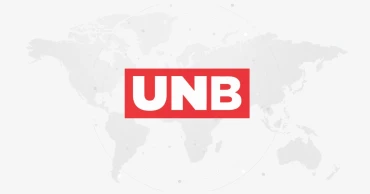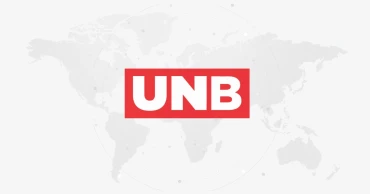gul
Bangladesh Economic Association proposes 70 percent tax on cigarettes, tobacco
The Bangladesh Economic Association (BEA) has proposed a 70 percent tax on all types of cigarettes and tobacco in the next budget.
The association reckons that doing so will reduce smoking by about 66 percent, alongside generating revenue of Tk1,700 crore for state coffers.
The proposal was submitted to the National Board of Revenue (NBR) during the pre-budget discussion held at the NBR Building on Sunday (February 18).
The General Secretary of the BEA Professor Dr. Md. Aynul Islam presented the budget proposal. Vice President of the association Professor Hannana Begum was present.
Read more: Govt cut VAT, duty on import of 4 essential items ahead of Ramadan
According to the BEA's proposal, imposing a single supplementary duty of 70 percent on all types of cigarettes would increase the price of cigarettes by an average of 130 percent.
Smoking will be reduced by 66 percent. About 70 lakh smokers will quit smoking, and about 71 lakh young people will stop habituating to smoking. Also, the additional tax revenue of the government will be earned at least Tk1700 crores, the proposal stated.
Similarly, the BEA demanded to impose a tax of 70 percent on all types of tobacco products including smokeless tobacco such as jorda, gul, sadapata, etc.
On the other hand, in the case of bidi, if the tax is imposed at the rate of Tk 4.90 on the retail price of every 25 shalak (piece) packet, the government will be able to collect additional revenue of Tk 800 crore.
Read more: ICMAB delegation takes part in pre-budget discussion with NBR
The BEA thinks with such a tax increase; revenue earning will be raised and it would help to revive the economy from the ongoing economic crisis. The BEA has a total of 27 new sources of revenue income.
At this time, Prof Aynul said, as a method of gathering resources for the upcoming budget, no pressure can be applied on the general population, such as the poor, lower class, lower middle class, and middle class.
Due to various reasons, this class of people is now in a severe economic crisis. It would be unfair at this moment to rely completely on them as in the past for tax collection.
In that case, the imposition of additional income tax on these three groups – the super-rich, the rich, and the upper-middle class – can be considered, said Prof Aynul.
Read more: PROGGA, ATMA for imposing specific taxes on tobacco products
2 years ago
265 zarda, gul factories evading taxes
Many smokeless tobacco (SLT) manufacturers of Bangladesh have managed to slip away from the government's tax net; at least 265 of them are not paying taxes and 33% do not even have a valid trade licence.
Of the 483 SLT factories, 435 zarda – moist or dry chewing tobacco – and 48 gul – oral tobacco powder – factories in Bangladesh, only 218 pay taxes.
Also read:1.26 lakh people die in Bangladesh every year in diseases ...
Dr Nasiruddin Ahmed, former National Board of Revenue (NBR) chair, came up with the number Monday while presenting the findings of the study "Factors inhibiting smokeless tobacco tax payments by smokeless tobacco manufacturers operating outside the tax net in Bangladesh" at a webinar.
The study was conducted with assistance from the Campaign for Tobacco-Free Kids.
NBR jointly organised the programme with several anti-tobacco organisations, including National Heart Foundation, Dhaka Ahsania Mission, UBINIG, Voice and Progga.
In Bangladesh, SLT manufacturing and marketing mostly go unsupervised and unregulated. So, these products remain quite cheap, available and affordable.
Also, around 91% of SLT manufacturers produce their products manually. SLT products are primarily manufactured in small unmarked factories or houses. Their total monthly gross turnover is around Tk2.7 crore.
Also read:Dhaka Conference: Amend tobacco laws, impose specific taxes
Bringing the SLT producers under the tax net would increase the tax revenues from this sector considerably, the study said.
However, it also identifies the "informal" nature of SLT production as the main impediment in ensuring tax compliance in the sector.
Several other issues concerning the NBR, including lack of trained officials, the organisational structure of field offices and the outdated equipment and systems also add to this problem, the study said.
The absence of a fully digitalised and automated tax return processing system as well as the lack of a secure tracking and tracing system also facilitates tax evasion.
The study suggests introducing an automated tax return processing system, equipping and training the NBR officials, restructuring NBR field formations, introducing a secure tracking and tracing system (TTS), and authorising local government institutions to bring SLT manufacturers under local tax nets.
SLT products are severely detrimental to health and responsible for causing oral, oropharyngeal and other types of cancers.
However, around 20.6% – 2.20 crore – adults and school-going children aged 13-15 use smokeless tobacco in Bangladesh.
Despite such a high prevalence of tobacco usage, the SLT sector contributed Tk30.6 crore in revenue – 0.12% of the total revenue collected from tobacco – in the fiscal year 2019-20.
4 years ago



